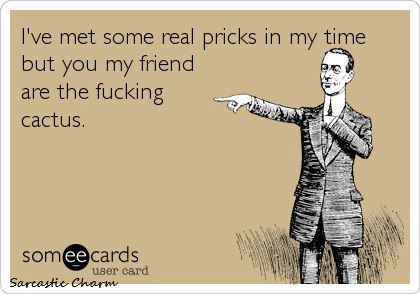<TABLE cellSpacing=0 cellPadding=0 width=629 border=0><TBODY><TR><TD colSpan=3>US-Brazil deal to boost bio-fuels
</TD></TR><TR><TD vAlign=top width=416><!-- S BO --><!-- S IIMA --><TABLE cellSpacing=0 cellPadding=0 width=203 align=right border=0><TBODY><TR><TD>Protesters fear the fuel deal will lead to more Amazon deforestation
</TD></TR></TBODY></TABLE><!-- E IIMA --><!-- S SF -->The United States and Brazil have signed an agreement to develop alternative fuel sources.
US President George W Bush said that by reducing oil dependence the two countries would be helping security, their economies and the environment.
His host, Luis Inacio Lula da Silva, said the deal was a new moment for the car industry, fuel production and humanity in general.
On Thursday at least 20 people were hurt in protests at Mr Bush's visit. <!-- E SF -->
Demonstrations continued on Friday, including outside the Hilton Morumbi hotel where Mr Bush was staying.
Correspondents say the US president will not have seen any of the protests, but a large white balloon with the words "Bush out" emblazoned on the side would have been visible to him as he went to meet Mr Lula.
Chavez visit
Mr Bush will also go to Uruguay, Colombia, Guatemala and Mexico during his six-day tour of Latin America.
<!-- S IBOX --><TABLE cellSpacing=0 cellPadding=0 width=208 align=right border=0><TBODY><TR><TD width=5></TD><TD class=sibtbg>
We see the bright and real potential for our citizens being able to use alternative sources of energy that will promote the common good
President Bush
<!-- S ILIN -->Brazilian bio-fuels' power
<!-- E ILIN --><!-- S ILIN -->Chavez attacks Bush
<!-- E ILIN -->
</TD></TR></TBODY></TABLE><!-- E IBOX -->
Coinciding with Mr Bush's visit to Uruguay, Venezuelan President Hugo Chavez is visiting Argentina.
He is expected to hurl insults at Mr Bush at a rally in a football stadium in Buenos Aires.
Ahead of the rally, the Venezuelan leader described Mr Bush's tour as an "imperialist offensive" aimed at dividing left-wing movements in the region.
The BBC's Daniel Schweimler, in Buenos Aires, says Mr Chavez will find an enthusiastic reception to his fiery brand of anti-US rhetoric.
'Strategic partnership'
Mr Bush and Mr Lula met at a fuel distribution plant in Sao Paulo.
<!-- S IBOX --><TABLE cellSpacing=0 cellPadding=0 width=208 align=right border=0><TBODY><TR><TD width=5></TD><TD class=sibtbg>

<!-- S ILIN -->Fighting region's suspicions
<!-- E ILIN --><!-- S ILIN -->In pictures: Brazil clashes
<!-- E ILIN -->
</TD></TR></TBODY></TABLE><!-- E IBOX -->
The meeting came as US Secretary of State Condoleezza Rice and Brazilian Foreign Minister Celso Amorim signed a deal making ethanol an internationally traded commodity and promoting its production in Central America and the Caribbean.
It will pool the experience and technology of the two countries, who are the world's biggest producers of ethanol.
"We come to celebrate a strategic partnership between the United States and Brazil," Mr Lula said as the two men toured the plant.
They said that increasing bio-fuel use would lead to more jobs, a cleaner environment and less dependence on oil.
"We see the bright and real potential for our citizens being able to use alternative sources of energy that will promote the common good," Mr Bush said.
Together with the US, Brazil produces about 70% of the world's ethanol, a bio-fuel made from sugar cane or corn.
But activists say sugar cane cultivation is water intensive and responsible for stripping the Amazon rainforest.
They also say the ethanol production process is concentrated in the hands of a few powerful families or corporations.
<!-- S IBOX --><TABLE cellSpacing=0 cellPadding=0 width=208 align=right border=0><TBODY><TR><TD width=5></TD><TD class=sibtbg>
It is time we stopped stereotyping the US as a ghastly empire and started negotiating with them... Move on!
Sandra Sena, Rio de Janeiro, Brazil
<!-- S ILIN -->Regional views
<!-- E ILIN -->
</TD></TR></TBODY></TABLE><!-- E IBOX -->
Many of the demonstrators are also angry at the war in Iraq.
On Thursday, about 10,000 people spilled out along one of San Paulo's broadest avenues, in the heart of the financial district, banging drums, waving red flags and carrying banners reading "Bush Go Home".
Although largely peaceful, clashes flared between some of the protesters and police.
The BBC's Lourdes Heredia in Sao Paulo says that while the majority of people in the city are suspicious of the visit they seem ready to give President Bush a chance. "Bush is not a close friend, but he is not our enemy either... I think we should have good relationships with everyone," shopkeeper Anne Helene told the BBC. <!-- E BO -->
</TD></TR></TBODY></TABLE>
http://news.bbc.co.uk/1/hi/world/americas/6434889.stm










 Reply With Quote
Reply With Quote


Social Networking Bookmarks